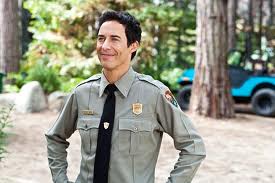When Mussolini made Italy's trains run on time, he ran
everything else on schedules, too. When I got to Naples from Greece, he was
long gone; but his schedules lingered.
As I passed Sorrento late, looking for a meal and a room, all I knew was
that I wanted to spend the following day gazing down the incredible cliffs to
the magic Mediterranean. This was Italy's SOUTH, and I was from California, for
heavens' sake! Sorrento is about the
same latitude as Washington, D.C. This
was April!! Winter was over!
So, driving around the heel of the “BOOT,” when a sign
indicated rooms, I stopped. The building was several stories tall, looking like
a Fifteenth Century town mansion (which made it relatively young). I gave it a try.
I found a place to park that didn't seem likely to be
available to the roaming groups of boys who strip cars, then tried the rooming
place.
The lobby was ornate and tired, dark, with very high
ceilings, heavily draped, and loosely littered with curvy furniture. At the far
back a woman eyed me warily, as if I were casing the joint. She glowered. I thought for a moment of trying another
place; but it was nearly ten p.m. Even though Europeans dine much, much later
than we do, I wasn't sure I could get a decent meal after another hour or
so.
I walked to the counter. The gloomy woman said she had a
room. It was up two flights, but no
worse than the rest of the peninsula's
ancient, forgotten past. Besides, my car
was in the only spot I felt was not at risk from vandalism and the world's
worst drivers.
I asked about food, and the woman came to life. Ah, si, her cousin (I think she said) ran an
"excelante ristorante" just doors up the street. She was right, too. I wouldn't have given it four stars, or even
two; but it was clean and passable. I
ate and returned to my quarters about ten.
The bed was short. The frame, when I'd checked before,
was long enough; but the mattress was made for a Sixteenth Century population
when men were all 5' 6". I also discovered that there was no heat. I saw a phone but knew that my infinitely modest command of Italian
would be worthless over the phone. I dressed and went down to the lobby.
My suspicious concierge had been replaced by a smiling,
plump woman who looked like a sister of the first one but who clearly had a
better disposition. She greeted me
almost effusively in rapid Italian, of which I recognized not a word.
I tried to explain
with appropriate gestures that the bed was too small, there were insufficient
covers, and there was no heat. The woman
nodded a lot and smiled a lot. When I had exhausted my mime performance, she
nodded even more vigorously. In her own
pantomime, she proposed that I put on more clothing. Somehow, then I managed to
pull out of thin air the word for heat.
I needed some.
At that, my smiling substitute concierge pulled out a
calendar. With authority, she pointed to the 14th day of April. I knew we were
past that date. So what? So what was that, after then, hotels were no
longer required to heat rooms. Shades of
Benito!
A super popular song of prewar days was "Come Back
to Sorrento." I know why they left.

.jpg)

.jpg)




















